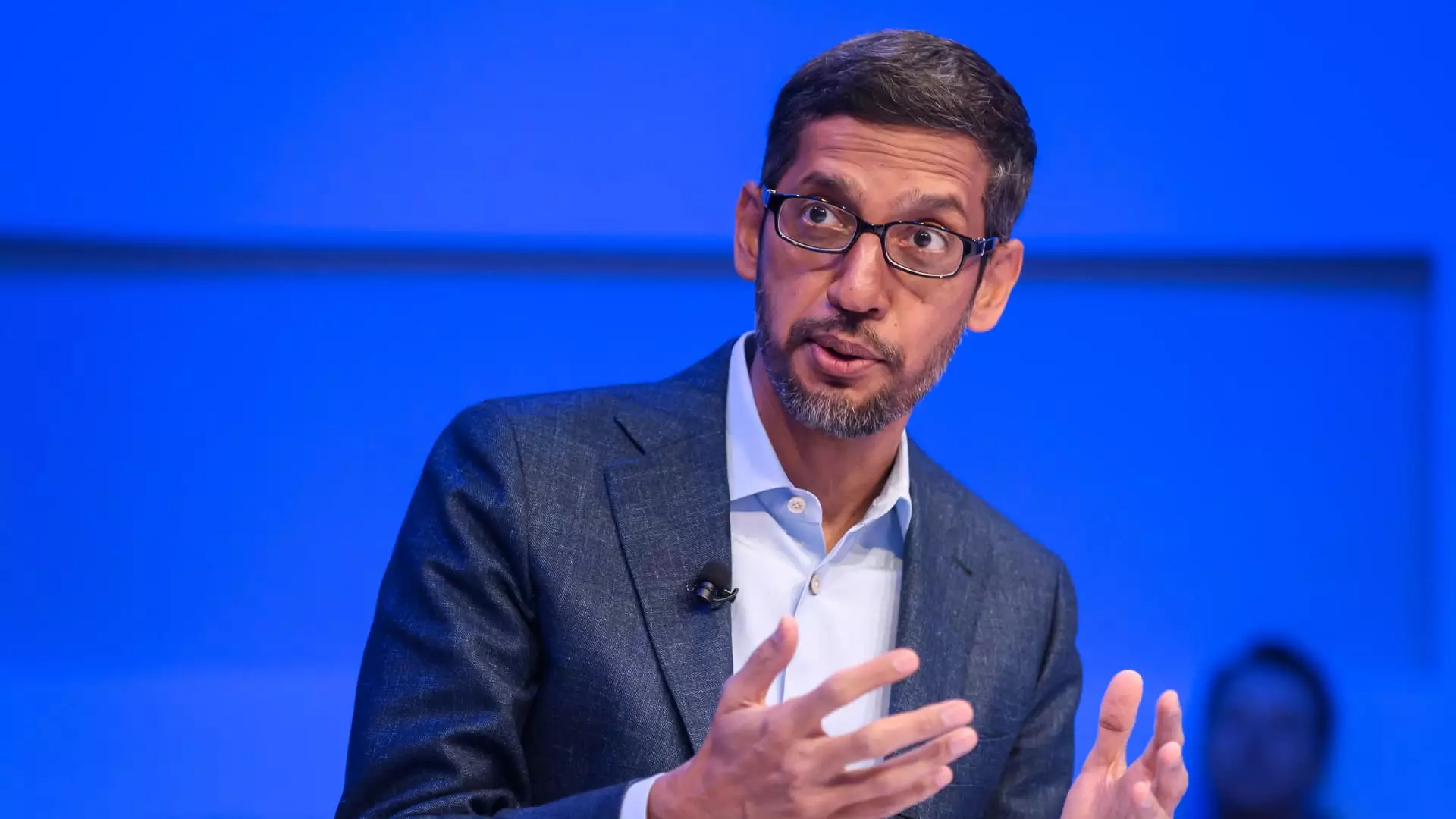With 2025 looming as a critical year for Google, the company under the leadership of CEO Sundar Pichai is facing unprecedented challenges. As competition intensifies and regulatory frameworks tighten, the landscape is shifting rapidly, especially in the domain of artificial intelligence (AI). Pichai’s recent communications highlight the necessity for urgency and innovation within the company as it gears up to tackle both external pressures and internal aspirations.
In a strategy meeting filled with festive attire, Pichai articulated a sense of urgency regarding the future of Google. He underscored that the stakes are immensely high, encapsulating the sentiment with the statement that 2025 will be a pivotal moment for the tech giant. As Google grapples with the rapid advancements in AI and a marketplace that is teeming with new competitors, the call for transformation is loud and clear. By emphasizing the importance of solving real user problems, Pichai is not merely pointing to superficial enhancements; he is advocating for a profound use of technology that can reshape user experiences.
This transition is not only about adopting advanced technologies but also about fostering a company culture capable of embracing change. The reference to “disruptive moments” is telling of a wider industry trend where companies must differentiate themselves to survive. With AI-driven applications redefining user interactions, Google must not only keep pace but also establish itself as a leader.
Historically a dominant player in the search and advertising space, Google finds itself under intense pressure from emerging competitors. The advent of generative AI has introduced new avenues for accessing information, radically altering user expectations and behaviors. OpenAI, with its ChatGPT, has become a household name, showing just how quickly user loyalties can shift. Here, Google’s monopoly in search is being challenged like never before, as consumers may increasingly opt for alternative platforms that offer a more innovative use of AI.
At the same time, regulatory scrutiny is at an all-time high. Legal battles surrounding anti-competitive practices are not just one-off events; they signify a broader movement to hold big tech accountable in a rapidly evolving digital space. Pichai noted the global scrutiny that Google faces, admitting that balancing innovation while obeying regulatory guidelines will require finesse.
Internally, Google wrestles with its corporate culture and the vision that Pichai has carved out. With reports of friction emerging amid the ranks, it is evident that there’s a dual challenge of addressing external competition while also aligning internal stakeholders behind a unified vision. Employees have shown concern regarding the direction or “vision for the future” articulated by Pichai, indicating that internal buy-in is as essential as external competitiveness.
In addressing employee questions, senior executives noted the need for innovation, with an emphasis on scaling projects such as Gemini, designed to keep Google relevant in AI. Yet, there is an underlying tension that emerges when asking how far the company is willing to go to keep its innovations consumer-friendly without resorting to premium pricing models. Such discussions reveal the complexity of remaining accessible while evolving technologically.
Innovative Aspirations on the Horizon
Despite these pressures, Google is not standing still. The introduction of the Gemini app exemplifies the company’s commitment to staying relevant and competitive. This strategic focus on integrating AI features is a testament to how seriously Google is investing in its future. With ambitions of attracting half a billion users, the stakes surrounding Gemini are enormous. Google appears to be aware that success here could define its position in the AI landscape.
Moreover, innovative projects like the universal assistant Project Astra suggest a willingness to venture into uncharted territories. This vision aims to consolidate various functionalities into a single AI-driven interface, catering to the multifaceted needs of modern users.
Looking back, Pichai drew parallels to the creativity seen in Google’s early days under founders Larry Page and Sergey Brin. The scrappy ethos that characterized the infancy of Google is being invoked as a guiding principle in navigating today’s challenges—reminding employees that constraints may often spur creativity rather than hinder it.
The combination of AI innovation, handling regulatory scrutiny, and infusing creativity into corporate culture sets the stage for what could be a transformative year for Google. In this rapidly evolving digital landscape, the company’s ability to pivot and adapt while staying true to its core values will be crucial for its success in the months and years to come. Pichai’s resolve rings clear: 2025 is not just another year; it is a vital juncture that could redefine Google’s legacy in the technology sector.


Leave a Reply